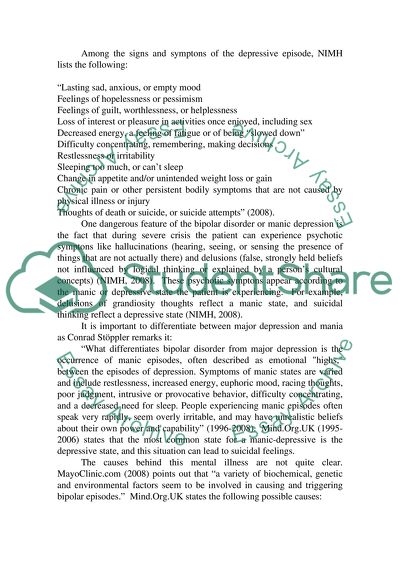Cite this document
(“Manic Depression Essay Example | Topics and Well Written Essays - 1000 words”, n.d.)
Retrieved from https://studentshare.org/miscellaneous/1515227-manic-depression
Retrieved from https://studentshare.org/miscellaneous/1515227-manic-depression
(Manic Depression Essay Example | Topics and Well Written Essays - 1000 Words)
https://studentshare.org/miscellaneous/1515227-manic-depression.
https://studentshare.org/miscellaneous/1515227-manic-depression.
“Manic Depression Essay Example | Topics and Well Written Essays - 1000 Words”, n.d. https://studentshare.org/miscellaneous/1515227-manic-depression.


